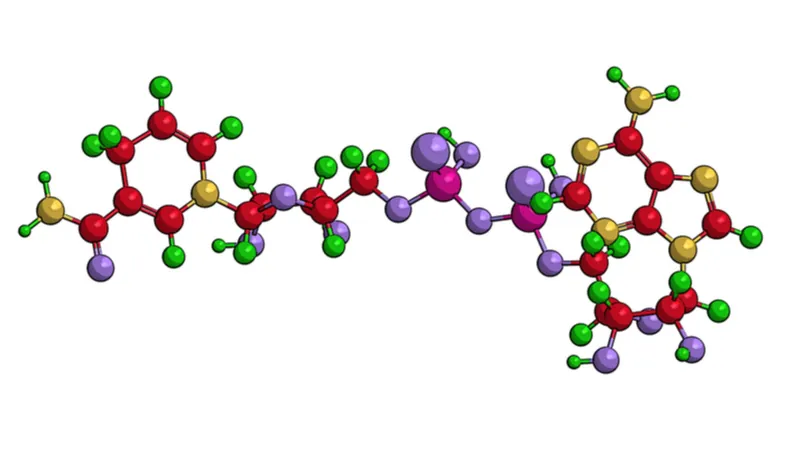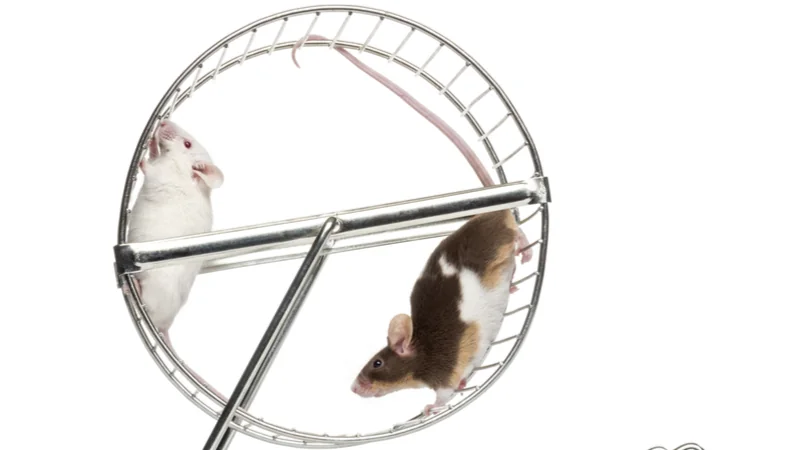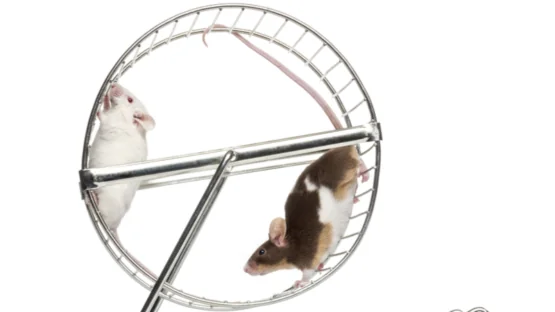Scientists from Mayo Clinic have significantly extended lifespan in male mice by inhibiting the enzyme CD38, which lowers NAD levels [1].
The age-related decline of nicotinamide dinucleotide (NAD) has been associated with various metabolic abnormalities, age-related diseases, and fitness loss.

Read More
Increasing NAD levels is considered a plausible anti-aging strategy, but scientists usually attempt to achieve it by supplementing NAD precursors such as nicotinamide riboside (NR) and nicotinamide mononucleotide (NMN). Although such supplementation has shown various health benefits, the only robust study that was done in the context of lifespan extension – a study of NR by the Intervention Testing Program (ITP), which is considered the golden standard of anti-aging drug testing – delivered negative results [2].
Interestingly, in that trial, scientists detected no NAD increase in tissues, which means that for unknown reasons, perhaps involving poor absorption, NR supplementation failed to boost NAD levels. Therefore, the trial did not bury the hypothesis that increasing NAD levels extends lifespan, but it raised the question of whether NR supplementation is the best strategy.
Enter CD38
The enzyme CD38 has multiple roles, including in the metabolism of NAD. CD38 expression causes a decline in NAD+ levels, most likely by regulating the availability of its precursors [3]. Hence, inhibiting it should have the opposite effect. In earlier research, scientists have created genetically modified CD38-deficient mice. These mice were not tested for lifespan, but the knock-out led to both positive effects [4] and deficiencies [5], helping to elucidate some roles of CD38.
This time, the researchers chose a different approach, inhibiting CD38 with the molecule 78c. In a previous study, 78c extended the survival of progeroid mice [6], but it was important to test it on naturally aging animals.
In the first experiment, 78c was fed to young mice, which significantly boosted their NAD levels, validating the approach. Then, the researchers took one-year-old naturally aging mice, dividing them into treatment and control groups. The researchers followed the mice until they died of natural causes or were euthanized according to the established rules, including non-fatal conditions that elicit animal suffering.
A benefit only for males
The treatment resulted in a 9% extension in maximum lifespan, which is considered substantial, but the results were highly sex-specific. In males, a 14% increase in maximum lifespan and a 17% increase in median lifespan were recorded, while in females, no statistically significant survival benefit was observed.
Interestingly, scientists often detect sex-related differences in the efficacy of candidate geroprotective drugs. Most molecules that caused lifespan extension in ITP trials worked better in one sex (usually males) than in the other. The reasons for this discrepancy are not fully clear yet, but it is something that scientists will have to consider when designing new anti-aging drugs and treatments.
The scientists noticed that the female mice in the study were disproportionally euthanized due to non-lethal conditions rather than dying of natural causes. They hypothesize that at a certain point, CD38 deficiency starts causing non-fatal deleterious conditions in female mice. Prior to that point, the survival curve for the treated female mice looked much better than that of the controls, but then it plunged abruptly. This might be relevant for elucidating the sex-specific effects of CD38 and other geroprotective drugs.
In fitness, sex-related differences were smaller, with both sexes seemingly benefiting from the treatment. Even at the age of two years (roughly equivalent to 60 human years), and 50 weeks after the beginning of the treatment, treated mice performed significantly better on a treadmill and in a hand grip test, and their rate of age-related fitness loss was much slower.
Most laboratory mice die from cancer, but autopsies showed no difference in the proportion of visible tumors between the treated mice and the controls. This suggests that 78c improves lifespan not via any evident anti-cancer effect. One possible takeaway is that a combination of 78c and an anti-cancer drug can potentially lead to an even greater increase in lifespan. Many researchers are convinced that combination treatments are the future of geroscience, but as of now, very few combinations have actually been tested.
Conclusion
With this study, 78c joins the growing cohort of molecules that extend lifespan in mice, a model organism that is considered close to humans. This particular study had a small sample size and questionable design features: some findings, such as NAD levels, were not stratified by sex, even though this study revealed substantial sex-related differences in the treatment’s efficacy. However, this study provides an important proof of concept for an alternative way to boost NAD levels in aging organisms. Since the lifespan extension was substantial, at least in males, we hope to see 78c or other CD38 inhibitors taken up by the ITP in the near future.
Literature
[1] Peclat, T. R., Thompson, K. L., Warner, G. M., Chini, C. C., Tarragó, M. G., Mazdeh, D. Z., … & Chini, E. N. (2022). CD38 inhibitor 78c increases mice lifespan and healthspan in a model of chronological aging. Aging Cell, e13589.
[2] Harrison, D. E., Strong, R., Reifsnyder, P., Kumar, N., Fernandez, E., Flurkey, K., … & Miller, R. A. (2021). 17-a-estradiol late in life extends lifespan in aging UM-HET3 male mice; nicotinamide riboside and three other drugs do not affect lifespan in either sex. Aging cell, 20(5), e13328.
[3] Hogan, K. A., Chini, C., & Chini, E. N. (2019). The multi-faceted ecto-enzyme CD38: roles in immunomodulation, cancer, aging, and metabolic diseases. Frontiers in immunology, 10, 1187.
[4] Bu, X., Kato, J., Hong, J. A., Merino, M. J., Schrump, D. S., Lund, F. E., & Moss, J. (2018). CD38 knockout suppresses tumorigenesis in mice and clonogenic growth of human lung cancer cells. Carcinogenesis, 39(2), 242-251.
[5] Chen, J., Chen, Y. G., Reifsnyder, P. C., Schott, W. H., Lee, C. H., Osborne, M., … & Leiter, E. H. (2006). Targeted disruption of CD38 accelerates autoimmune diabetes in NOD/Lt mice by enhancing autoimmunity in an ADP-ribosyltransferase 2-dependent fashion. The Journal of Immunology, 176(8), 4590-4599.
[6] Tarragó, M. G., Chini, C. C., Kanamori, K. S., Warner, G. M., Caride, A., de Oliveira, G. C., … & Chini, E. N. (2018). A potent and specific CD38 inhibitor ameliorates age-related metabolic dysfunction by reversing tissue NAD+ decline. Cell metabolism, 27(5), 1081-1095.




